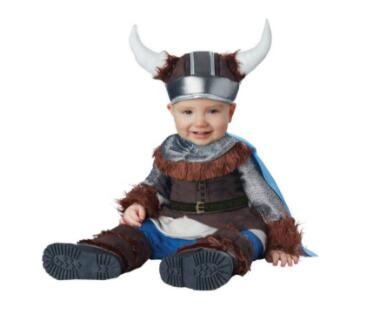Viking culture has been a source of fascination for centuries. The Vikings were known for their seafaring, raiding, and trading activities, as well as their unique way of life. One aspect of Viking culture that has garnered a lot of attention is their naming conventions. In this article, we will explore Viking names for males and their meanings.

The Vikings had a complex naming system that was based on several factors, including family lineage, occupation, and personal characteristics. Many Viking names were derived from Norse mythology, which was an important part of Viking culture. Here are some of the most popular Viking names for males and their meanings:
1. Aksel - "father of peace"
2. Alrik - "ruler of all"
3. Arvid - "eagle tree"
4. Bjorn - "bear"
5. Dag - "day"
6. Einar - "lone warrior"
7. Erik - "eternal ruler"
8. Finn - "fair"
9. Frey - "lord"
10. Gorm - "godly"
11. Gunnar - "warrior"
12. Halfdan - "half Dane"
13. Harald - "ruler of an army"
14. Hjalmar - "helmeted warrior"
15. Ingvar - "warrior of Ing"
16. Ivar - "archer"
17. Jorgen - "farmer"
18. Kjell - "kettle"
19. Leif - "descendant, heir"
20. Magnus - "great"
21. Njal - "giant"
22. Olaf - "ancestor's relic"
23. Ragnar - "warrior of the gods"
24. Rolf - "famous wolf"
25. Sigurd - "victory guardian"
26. Thor - "thunder"
27. Ulf - "wolf"
28. Vidar - "warrior of the forest"
29. Yngvar - "warrior of Ing"
30. Zane - "God is gracious"
These Viking names are only the tip of the iceberg. There are countless other names that were used by the Vikings, each with its own unique meaning and history.
In addition to their meanings, Viking names were also an important way of identifying oneself within the community. Vikings often used a patronymic naming system, which meant that their last name was derived from their father's first name. For example, if a man's name was Erik and his father's name was Sven, his full name would be Erik Svensson.
Another interesting aspect of Viking naming conventions is the use of bynames. Bynames were used to distinguish individuals with similar names or to describe their personal characteristics. For example, if a man was known for his long beard, he might be called "Longbeard."
Viking names also reflected the importance of family lineage. It was common for Vikings to include their family's name in their own, such as "Harald Fairhair," which indicated that Harald was descended from a family known for their fair hair.
In conclusion, Viking names are a fascinating part of Viking culture that continues to intrigue people to this day. Whether you are looking for a unique name for your child or simply want to learn more about Viking history, the names listed above are a great place to start. Remember, these names are more than just words – they are a reflection of the rich and complex culture of the Vikings.






